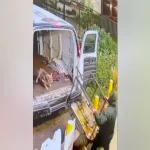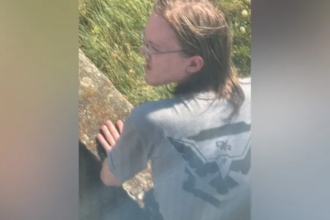Sierra Leone has imposed a statewide curfew after armed men broke into prisons and released detainees.
According to the West African country’s information minister, detainees from a number of “major” facilities were released on Sunday morning.
Earlier, gunmen stormed a military barracks in Freetown, the capital city.
Residents reported hearing gunshots near the presidential mansion, which is close to the barracks.
The Ministry of Information ordered an emergency curfew following the attack. Residents around the country are being “strongly” advised to remain indoors, and flights to and from the country’s lone international airport have been canceled.
The “assailants” have been driven back to the outskirts of Freetown, according to Information Minister Chernor Bah, at 13:30 (local time and GMT).
“Most of the city is calm and under the control of the state security forces,” he posted on the social networking platform X.
“Major detention centres including the Pademba Road Prisons were attacked earlier today and in the interest of protecting civilian lives (including of prisoners), the security forces were forced to make a tactical retreat.”
According to a military source, several of the gunmen, including former President Ernest Koroma’s bodyguard, have been apprehended.
The BBC reported this morning that soldiers in Freetown were bringing heavy armaments in a confiscated police van, and that others were chanting that they meant to “clean Sierra Leone.”
It is unclear how many prisoners were released, but social media images show numerous people fleeing the area of Freetown’s Central Pademba Road prison.
One video purported to show popular rapper Boss LAJ, who was imprisoned on robbery charges last year, escaping.
The BBC has been unable to verify the authenticity of these videos.
President Julius Maada Bio talked on X about a resolution to “protect democracy in Sierra Leone” and asked citizens to remain indoors.
Sierra Leone’s political environment has remained volatile since June, when President Bio was re-elected, narrowly avoiding the need for a run-off election.
Inconsistencies and a lack of openness in the count, as well as incidents of violence and intimidation, have been condemned by international observers.
A handful of troops were arrested in August and accused of preparing a coup against the president.
Following a series of coups, eight countries in West and Central Africa are now under military authority, including neighboring Guinea.
The United States, the European Union, the United Kingdom, and the regional body Ecowas all issued statements strongly denouncing the violence on Sunday.














